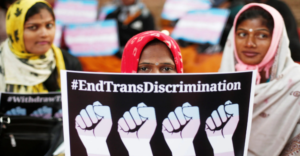On February 1, 2023, Union Finance Minister Nirmala Sitharaman presented the Union Budget for 2023. FM Nirmala Sitharaman said, “The Indian economy is expected to grow at 7% in fiscal 2022-23 – the highest rate of growth among all major economies.” The Union Budget lists seven priorities (Saptarishi)- Inclusive development, Green growth, Financial Sector, Digital infrastructure to aid the agriculture sector, Youth Power, Infrastructure and investment and Unleashing potential.
The various highlights of Union Budget 2023 include changes in the Customs Duty regime, the Tax regime and revised allocations to several schemes. PAN (Permanent Account Number) will be referred to as a single business identifier for all the digital systems in all government departments. The new tax regime of Union Budget 2023 proposes no income tax with annual income up to Rs.7 lakh. The PM Awas Yojana’s new allocation has been increased from 48,000 to 79,500 crores. Also, the Union Budget 2023 has provided an outlay of Rs. 2.4 lakh crore to the Railways, making it the highest-ever outlay.
Budget and associated Corporate Responsibility

“Corporate Social Responsibility” refers to a business model that requires firms to be socially accountable. It is mainly classified into four categories, which are environmental impacts, ethical responsibility, philanthropic endeavours, and financial responsibilities. The Union Budget 2023 has made certain amendments to the existing GST system.
According to the Companies Act 2013, every company having a net worth, turnover, or net profit needs to spend 2% of its net profit earned for the last three years on social causes. Thus, earlier, the government used to give tax credits to companies in such cases. However, Union Budget 2023 has amended this to no imposition of indirect tax credit (ITC) on goods and services used for CSR activities. This implies that the companies will now have to bear the full cost of their social welfare activities, according to the Finance Bill, 2023.
In the Union Budget 2023, the government, under the Green Credit Program under the Environment (Protection) Act, provides incentives not only to corporations but also to individuals to take sustainable and responsible actions. Companies such as Greenply Industries Ltd. have started a three-year plan to integrate environmental, social, and governance aspects under a programme called “ESG 360”. Another such example is the “Primus Partners” company. The company claims to integrate the government’s green initiative measures, such as zero-emission and urban planning missions to fight against climate change.
Union Budget and NGOs

The Union Budget 2023 keeps NGOs at the centre of various initiatives undertaken for the marginalised sections of society. NGOs would work as a bridge connecting the schemes and initiatives of the government to the common masses.
Opportunities for NGOs
FM Nirmala Sitharaman announced the establishment of National Digital Libraries for children and adolescents. It would facilitate the availability of quality books. For accessing National Digital Library resources, states will be directed to provide infrastructure for physical libraries at Panchayat and Ward levels. Union Budget 2023 also proposes non-curricular reading at these physical libraries through The National Book Trust and The Children’s Book Trust. The initiative also allows non-governmental organisations (NGOs) that work in literacy to collaborate with the government on this initiative.
The Finance Minister also launched the Pradhan Mantri Particularly Vulnerable Tribal Groups (PVTGs) Development Mission to help such communities improve their socioeconomic standing. NGOs working for tribal communities can collaborate with the government in such missions.
Most of the time, groups of artisans and traditional craftsmen are unable to get access to and knowledge of such initiatives. As NGOs collaborate with the government on these initiatives, they can act as a link between these groups and the schemes.
Impact on NGOs
The recent amendment regarding the Indirect Tax Credit (ITC) in the Union Budget 2023 may have a negative impact on NGOs. Even though the government said that tax credits need to be provided in the case of business expenses and CSR activities do not constitute it. The amendment to the Union Budget 2023 disincentivizes businesses from going above and beyond for social causes. Thus, exempting the NGOs from various opportunities and charities that they might have received. Thus, the Union Budget 2023 is a boon as well as a bane for NGOs.
-SURABHI SINGH
Must Read-https://skchildrenfoundation.org/global-layoffs





